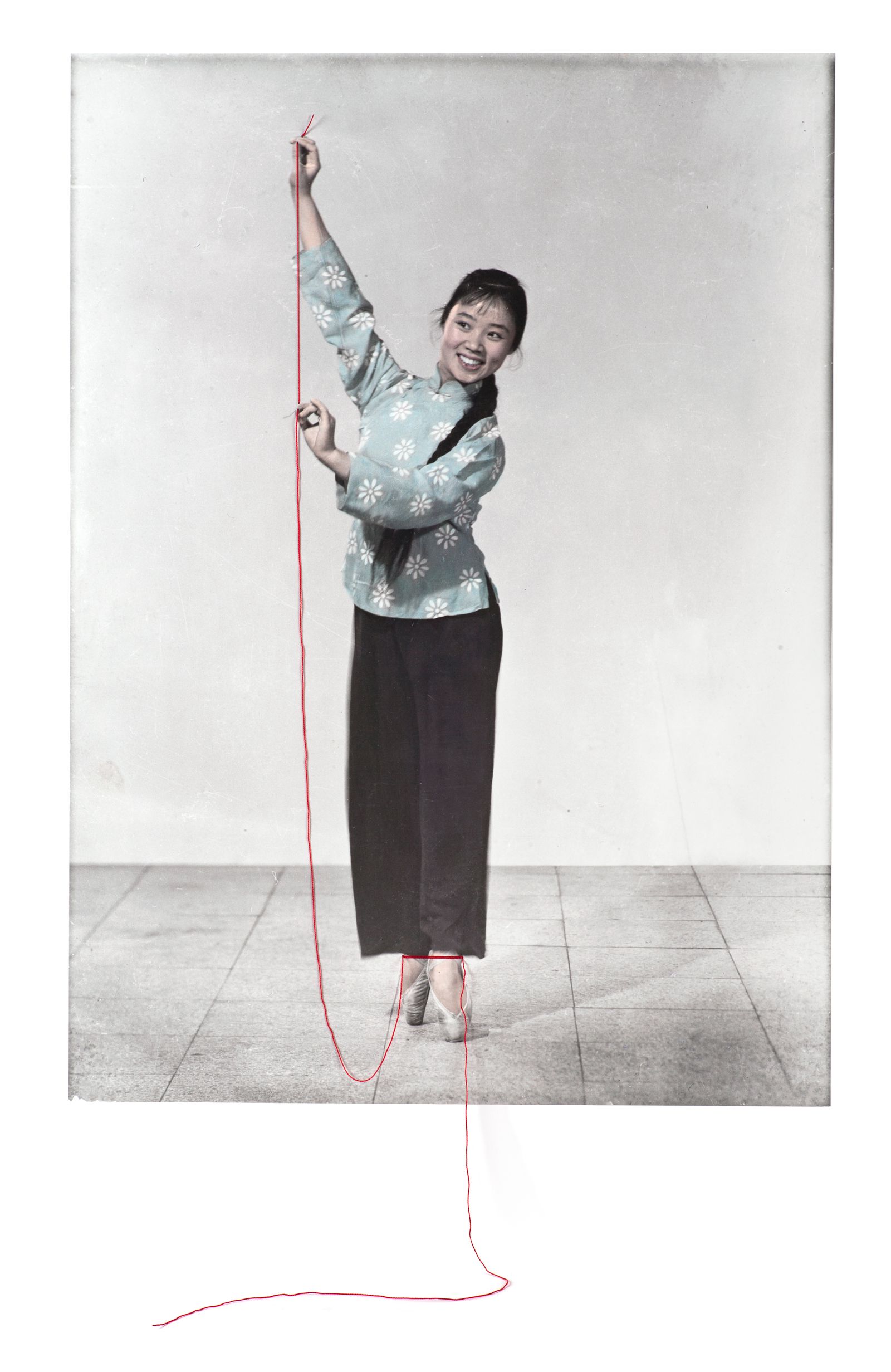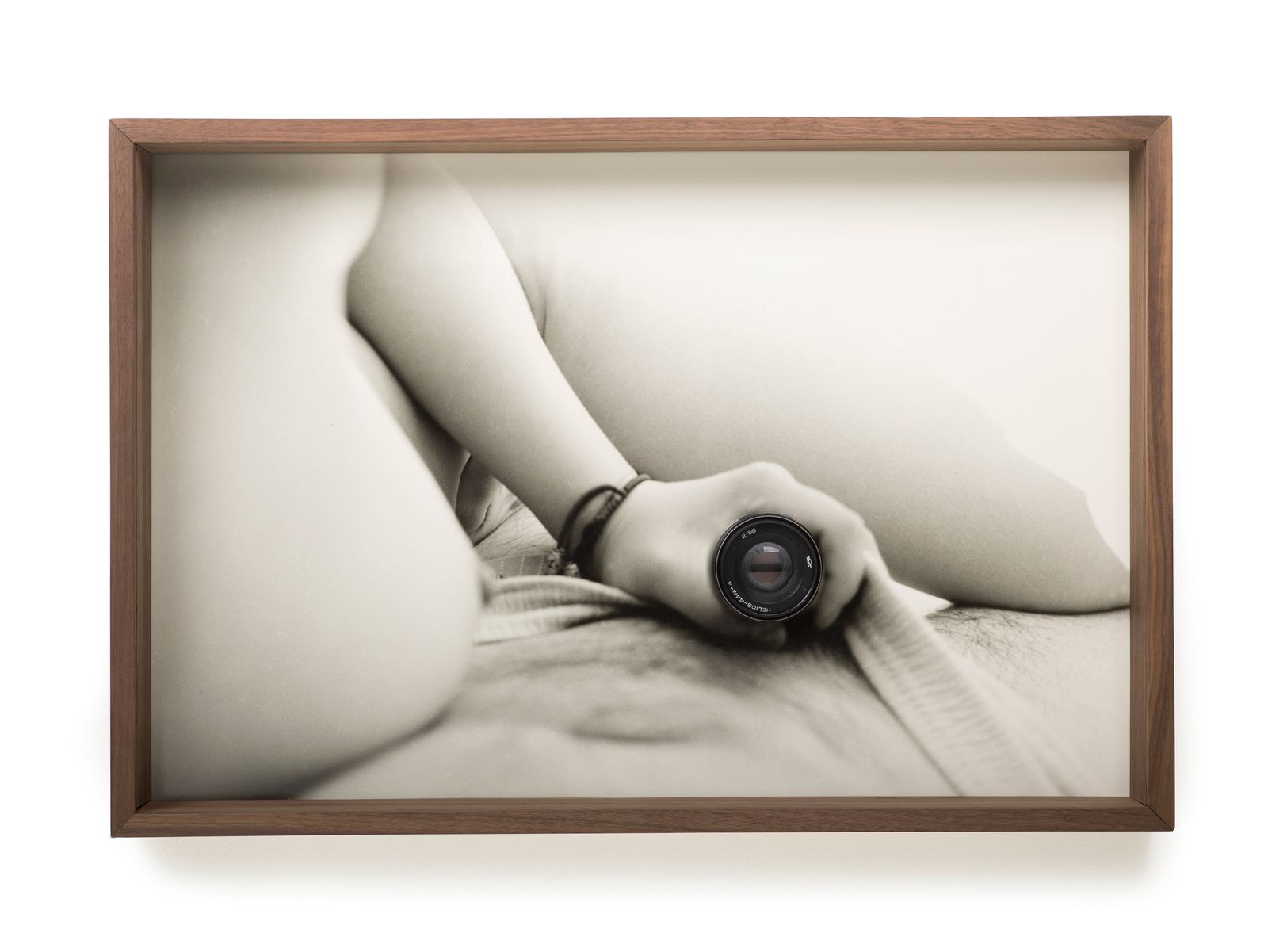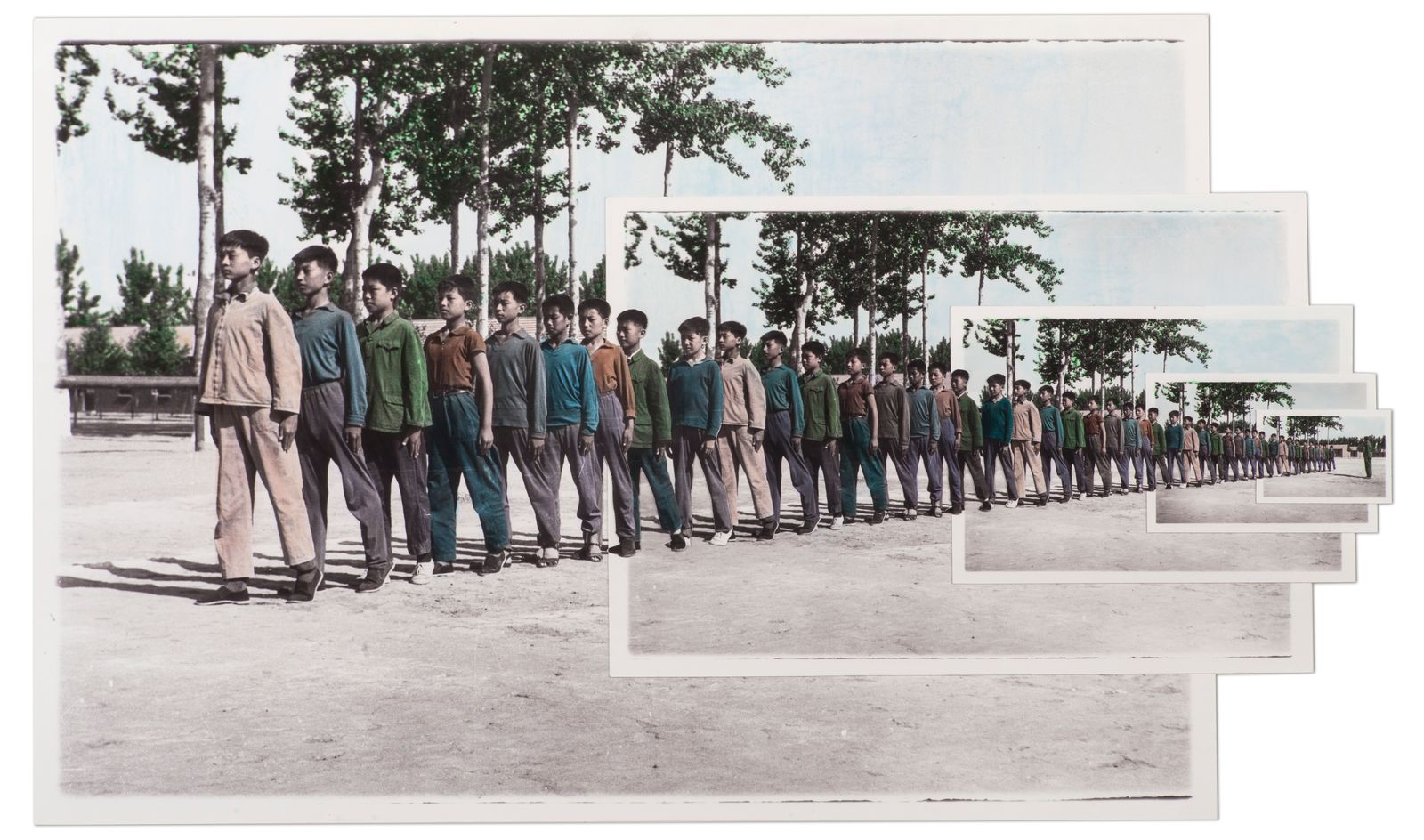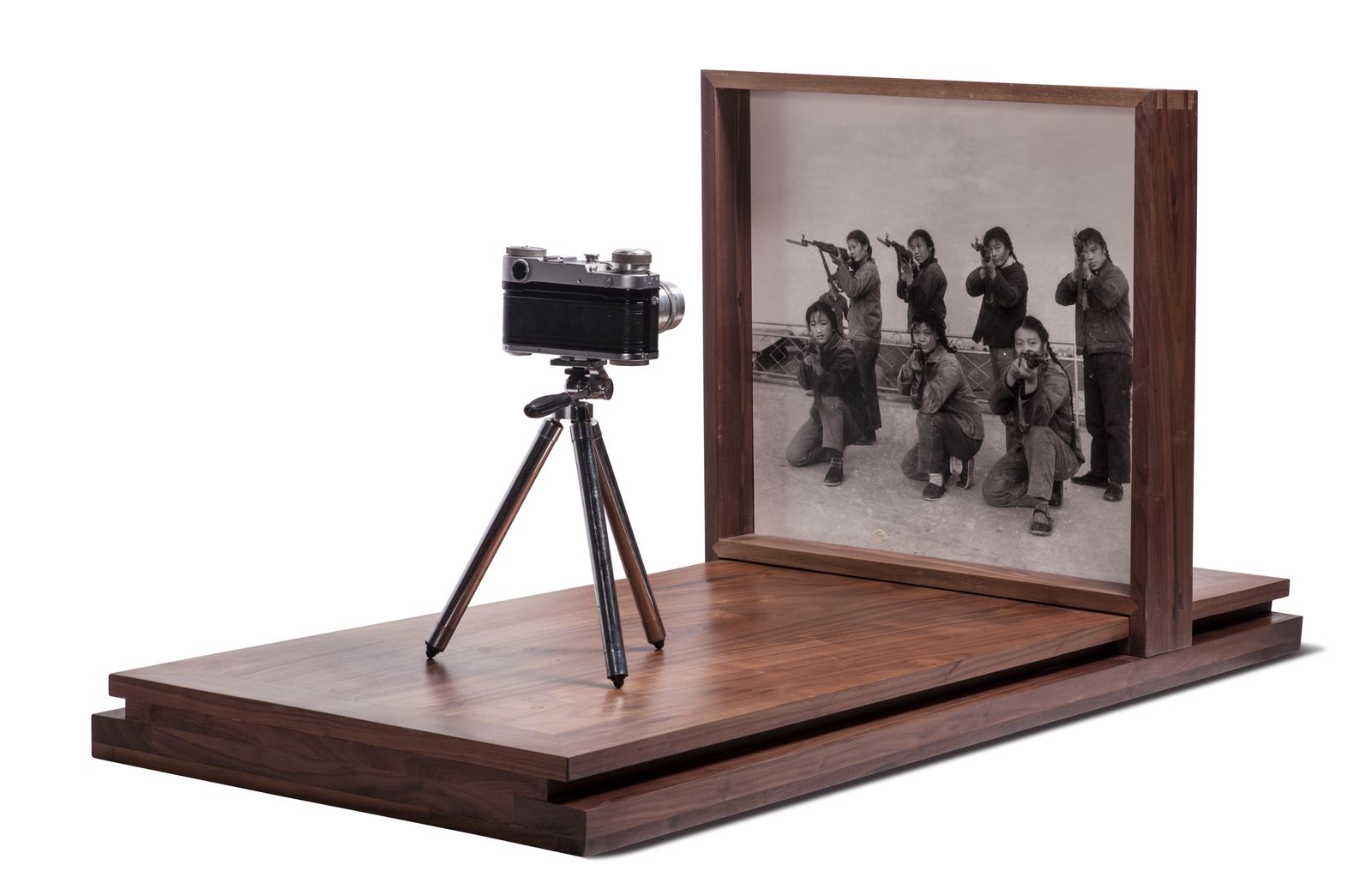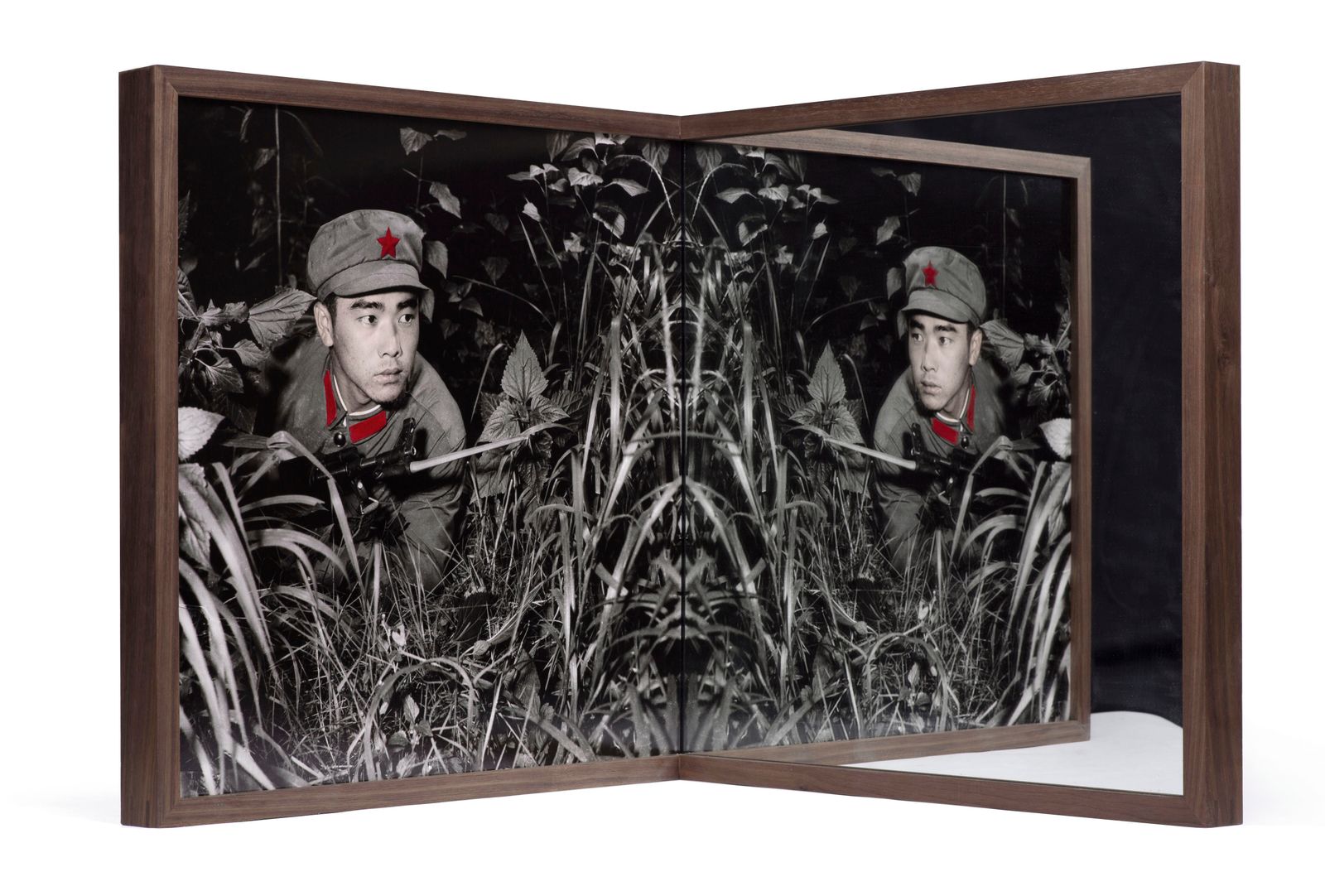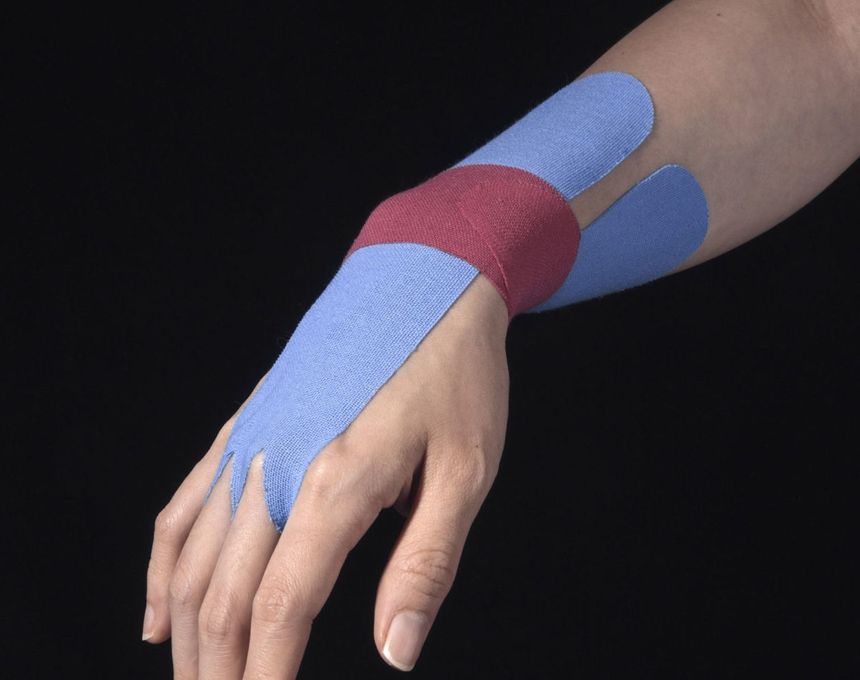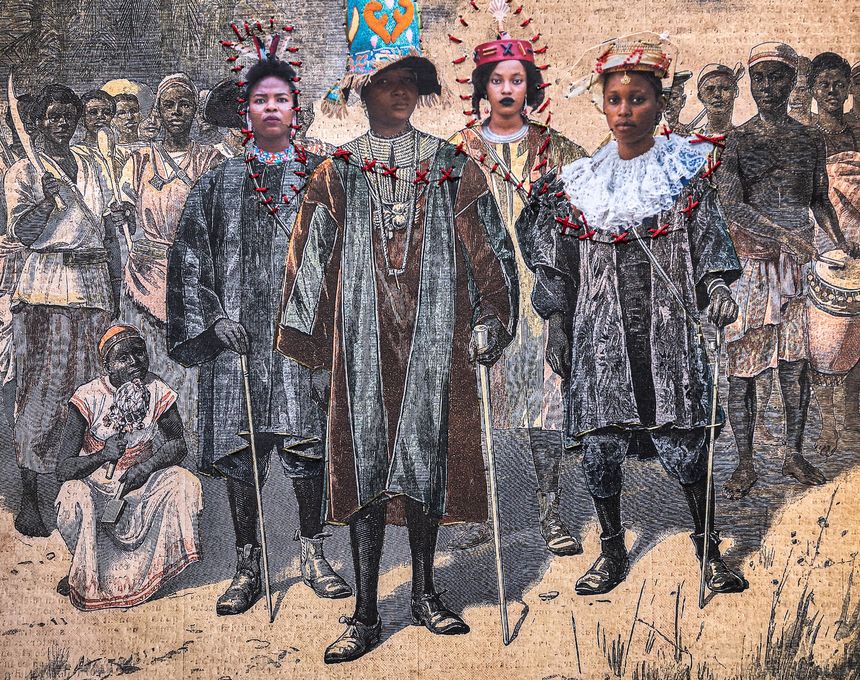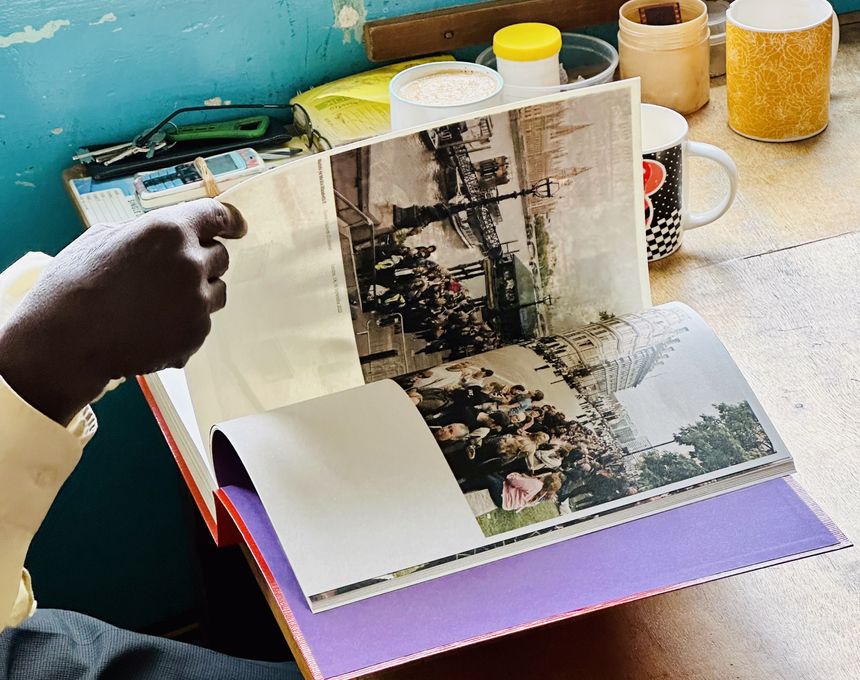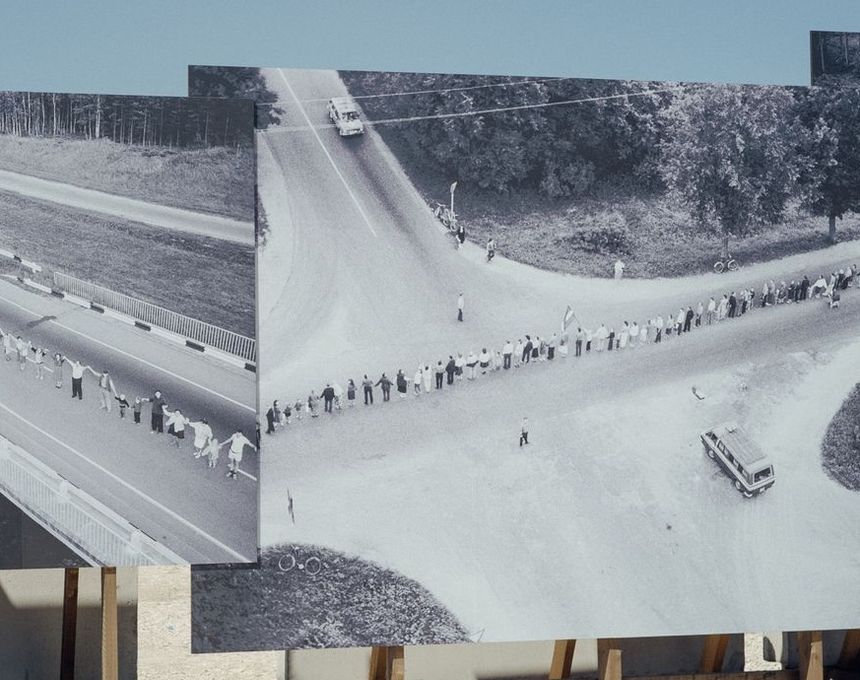Gun, Camera, Action: Winding Back the History of Photography
-
Published24 Mar 2022
-
Author
Cai Dongdong first learned about photography in the People’s Liberation Army when he was tasked with making identity pictures of his fellow soldiers. He left the army, studied photography at Beijing Film Academy and became a photographer in civilian life. He photographed the streets, everyday life, and lots of naked women.
Many years later, he looked at these pictures and wondered, as all self-aware photographers do from time to time, what the point of it all was. These pictures, he concluded, were pictures made within the confines of functional photography. They were now useless, a waste of time and space.
And so he set about destroying them, erasing, cutting, and generally mutilating what had once been the expression of his creative, photographic craft. As he destroyed, he found his once dull pictures revived. ‘I started to work on the rest: scratch, rub, or scrub… Like a surgeon, I operated on those photos,’ he writes in the afterword to the book.
And when he had finished working on his own photos, he began collecting images to work on… images from the past, from the 1950s through the latter years of Mao’s reign and beyond. He collected pictures of farmers in the field, young pioneers, local militia posing with their rifles, irrigation projects, and re-enactments of great events in Chinese history, such as Mao’s famous swim along the Yangzi.
Cai found these interventions transformed the images from their original starting points, undermining the original photographic and political messages, and so unmasking ‘…history’s false appearance the photos once brought.’
And that is what A Game of Photos is all about; a series of games played with images that resonate with idealized correct views of both China and the photographic message. Think Beijing Silvermine and their more playful visual teases, but with the political message brought to the surface and you’re halfway there.
You’re not all the way there because I’m not sure if that is possible. The messages Cai sends are both playful but also opaque, giving one the feeling that the meaning is always out of reach.
The games start with the cover, an image of a dancer holding a red string that Cai has worked into the picture. She stands on her toes, her pink ballet pumps stretched out, her hands holding a thread of red string that reaches down across the frame, around her ankles, and out of the frame.
There are mirrors, reflections, and image flips. Cameras and lenses are built into the image; a wooden rifle has a stereoscopic viewer built on in place of telescopic sights, a mirror faces an image of a young woman being trained to use a rifle. Lay the book flat and you see yourself in the mirror, squeeze the book close and the young woman shoots back at herself.
Some of the images are from installations; a picture of labourers carrying rocks from a quarry are integrated into large format camera framework, a yet-to-be built road has the print surface rolled back like a sardine tin, and a picture of a squad in firing position is laid out with a real-life Leica camera pointing at it.
There are wet-t-shirt breasts paired with a soldier in propagandist NO-pose, a naked woman reads Marx with her legs wide open, her vagina covered by a black circle that stares back a the viewer, and a team of trained sharp shooters line a river bank, their rifles pointed at the image on the facing page of two men riding a bicycle covered in balloons.
A Game of Photos is a fun and engaging book, with half the fun being trying to winkle out hidden messages in the images, their reflections, and their pairings. What it all means ultimately, who knows, but it has both humour and depth and that is a wonderful place to be.
---------------
All photos © Cai Dongdong
---------------
Game of Photos - Cai Dongdong,
214 pages, 1st edition of 300 copies
---------------
Cai Dongdong was born in Tianshui, Gansu, in 1978. He joined the People’s Liberation Army at a young age, taking up a role as a portrait photographer. This job became his formal training in the medium, developing into a career path as he returned to Beijing and opened his own studio. Through the use of archival, found photography, and installation, Cai creates half-fragmented realities. Taking readymade materials – a nod to Duchamp's Dadaist sensibilities – he pierces through the skin of these photographs with mirrors, arrows, and other objects, forming what he calls 'photo-sculptures.'
Colin Pantall is a photographer, writer and lecturer based in Bath, England. His book, All Quiet on the Home Front, focuses on family, fatherhood and the landscape. Follow him on Twitter and Instagram.
